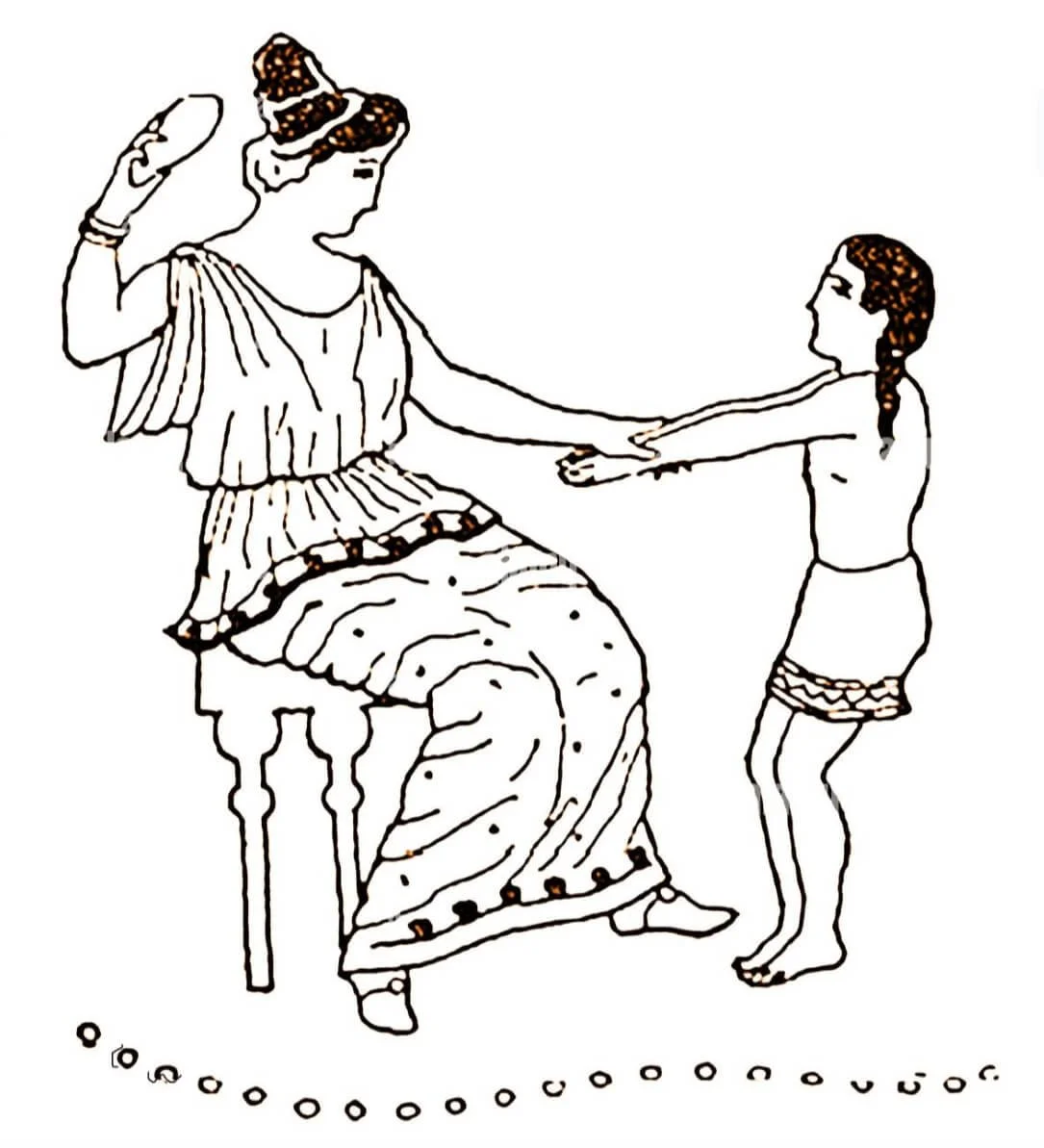By The Archaeologist Editor Group
Parenting has always been a challenging endeavor, and through history, mothers and fathers have employed various methods to discipline their mischievous offspring. In a curious twist of mythology, the Greek goddess Aphrodite, known for her beauty and allure, is revealed as the first mother to employ a rather unusual form of discipline—spanking her child Eros with a sandal. This ancient depiction has left a lasting legacy, with similar disciplinary practices seen in various cultures around the world today. Let's explore this intriguing story and its enduring impact on parenting traditions.
Aphrodite and Eros: An Unconventional Mother-Son Bond
In Greek and Roman mythology, Eros, the Greek god of love and desire, plays a pivotal role in shaping the dynamics of love and attraction. In the earliest accounts, Eros is described as one of the primordial gods involved in the creation of the cosmos. However, as mythology evolved, Eros took on the role of Aphrodite's son, and his interventions in the affairs of gods and mortals often led to the formation of illicit bonds of love.
The Ancient Depiction
The intriguing depiction of Aphrodite disciplining her son Eros with a sandal can be found in ancient Greek vases and statues. One such example is a vase dated back to 360 BC, currently displayed at the Taranto Archaeological Museum in Italy. This artwork vividly portrays Aphrodite threatening to strike her son, who appears to have misbehaved. This image serves as a glimpse into the everyday lives and familial dynamics of the ancient Greeks.
Sandal as a Symbol of Discipline
The sandal's use as a disciplinary tool was not exclusive to Aphrodite and Eros. In other ancient Greek artworks, we find instances where the sandal was employed to deter unwanted advances. For instance, Aphrodite also used her sandal to fend off Pan, the god of the wild, shepherds, and flocks. In these depictions, the sandal served as a symbolic means of asserting boundaries and maintaining decorum.
The Evolution of Ancient Greek Sandals
Apart from their role in mythology and discipline, ancient Greek sandals have had a lasting impact on contemporary fashion. These sandals, originally designed for practicality and foot protection, have evolved into a worldwide summer fashion trend.
A 1914 illustration taken from an ancient Greek carving showing an ancient Greek mother punishing her child using a slipper. Contributor: Colin Waters /Alamy Stock Photo
The tradition of parental discipline has taken on various forms throughout history. The depiction of Aphrodite disciplining her son Eros with a sandal offers a fascinating glimpse into the ancient Greek understanding of parenting. While this unique method of discipline may not be directly applicable in modern times, it underscores the timeless nature of parenting challenges and the creative ways parents have approached them. Additionally, the enduring popularity of ancient Greek sandals as a fashion statement serves as a testament to the lasting influence of ancient Greek culture on our world today.









